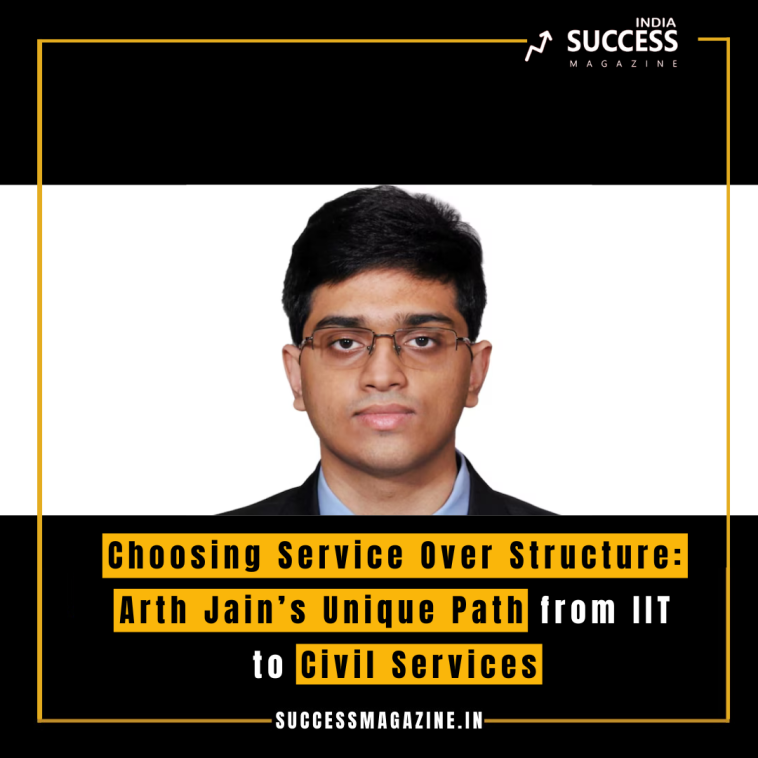Arth Jain, an IIT graduate, has taken a bold step that challenges conventional expectations. In a society that often glorifies engineering and technology careers, Jain has chosen to pursue civil services, driven by a desire for both societal impact and personal fulfillment. His decision underscores a growing trend among young professionals who seek more than just financial success; they aspire to make a meaningful difference in their communities.
Arth’s journey is particularly inspiring, given the high regard associated with degrees from institutions like the Indian Institute of Technology (IIT). Graduating from such a prestigious engineering school typically opens doors to lucrative job offers from top multinational corporations (MNCs). However, Jain felt that the allure of a corporate career lacked the deeper satisfaction he craved. He yearned for a role that not only provided stability and growth but also allowed him to engage directly with societal issues, akin to the work done by non-governmental organizations (NGOs).
This desire for impact led Jain to reflect on the unique position civil services occupy. In his view, a career in civil services offers the best of both worlds: the gratification of working on critical social issues while enjoying the stability and benefits of a corporate job. Civil servants play a crucial role in shaping policies, implementing programs, and serving the public, often at the grassroots level. For Jain, this role is not just a job but a calling—one that aligns with his values and aspirations.
The allure of civil services extends beyond personal satisfaction. Jain recognizes the potential for systemic change that civil servants hold. By entering this field, he aims to contribute to the development of policies that can significantly improve the quality of life for millions. The idea of being part of a system that influences education, healthcare, and infrastructure resonates deeply with him. He believes that effective governance can be a powerful tool for positive change, and he wants to be at the forefront of that change.
Moreover, Jain’s decision highlights a broader societal shift where traditional metrics of success are being redefined. Many young graduates now prioritize purpose over prestige, seeking careers that allow them to be agents of change. This trend is significant, particularly in India, where rapid development coexists with pressing social issues. By choosing civil services, Jain exemplifies a generation that is increasingly conscious of its role in fostering sustainable development and social equity.
As he embarks on this new path, Jain is aware of the challenges that lie ahead. The civil services examination is notoriously rigorous, demanding both dedication and resilience. However, he views these challenges as opportunities for growth, both personally and professionally. Jain is committed to preparing thoroughly, understanding that success in this field will require not just academic knowledge but also a nuanced understanding of the societal landscape.
In conclusion, Arth Jain’s choice to pursue civil services over a conventional engineering career reflects a profound commitment to societal betterment. His journey serves as an inspiration for others who may find themselves at a crossroads, questioning the traditional paths laid out before them. In a world increasingly in need of compassionate leaders and innovative thinkers, Jain’s decision embodies a new paradigm of success—one where personal fulfillment and societal impact go hand in hand. As he steps into this new chapter, his vision of marrying the impact of an NGO with the benefits of an MNC is not just a career choice; it’s a mission that promises to inspire others to follow suit.


